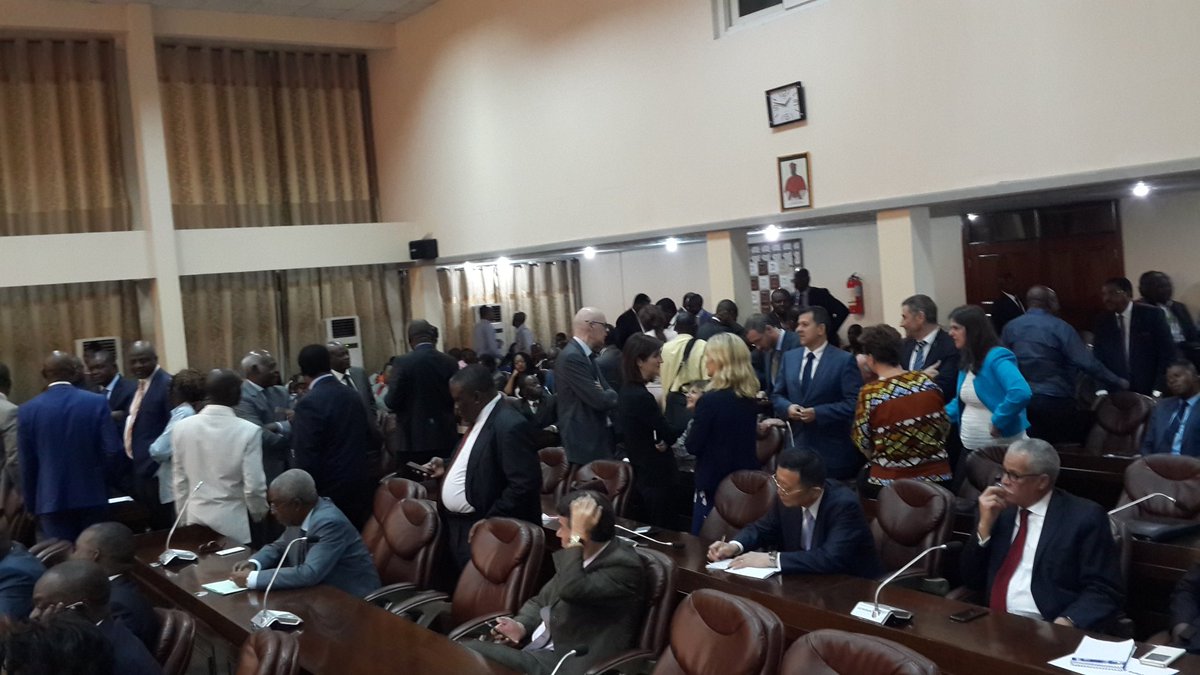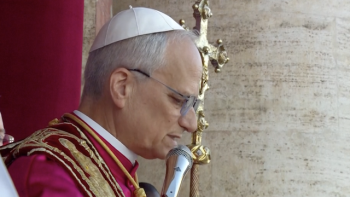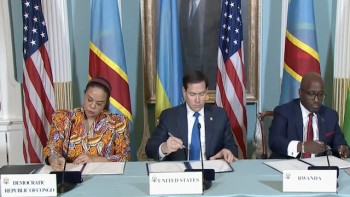Over the weekend of August 4-5, 2018, DRC President Joseph Kabila met two key groups vying for power in the Democratic Republic of teh Congo (DRC): the new appointed military and security forces leadership (see here) and the political leaders of his newly created coalition of political parties and civilian societies, known as Front Commun pour le Congo (FCC). The goal of FCC, according to Joseph Kabila, through his spokespersons, Joseph Kapita and Néhémie Mwilanya, is to support a unique candidate, who would be appointed by Joseph Kabila to replace him. Brief, a kind of dauphin.
Dissent within FCC
In FCC meeting, Joseph Kabila asked the leaders of teh parties and the civilian societies within FCC to submit to him four names, from which he would choose his dauphin. The first attempt failed. Each of the leaders asked why they would support somebody from the competiting political and voiced their concerns.
In fact, according to sources close to FCC leaders, among the names submitted, were:
- Matata Mponyo, former Prime Minister and leader of People's Party for Reconstruction and Democracy.
- Aubin Minaku, National Assembly Speaker.
- Néhémie Mwilanya, from Maniema Chief of Staff and Special Adviser to Joseph Kabila
- Evariste Boshab, Deputy Prime Minister in Charge of the Interior and Security
The names of the candidates were submitted to Joseph Kabila through Bishop Kuye N'Dondo, teh leader of the Church of Christ in Congo. Bishop Kuye N'Dondo, a long time member of Joseph Kabila' inner circle, was head of Truth and Reconciliation Commission and served as an envoy of Joseph Kabila's government during the negotiations in Rome, in 2008 - 2009, between the Congolese Government and the leaders of the Rwandan opposition group, known as National Democratic Congress (NDC).
NDC is composed on Rally for Unity and Democracy (RUD-Urunana), Rally for the Rwandan People (RPR - Inkeragutabara), and other armed groups based in Eastern DRC (see here in French: Kisangani Process: Feuille de Route Sur Le Desarmement RUD et RPR). The Rome negotiations, that led to the disarmament of some of the Rwandan armed rebels in Kasiki in 2008, was mediated by the Catholic organization Sant Egidio Community, then under the leadership of the current Archbishop of Bologna, Mgr Matteo Zuppi.
As soon as the names were submitted to Joseph Kabila, several political leaders started making overt and covert criticisms of the process. Others voiced concerns about the representativity of the candidates.
They wondered about the chances of success for two candidates, Matata Mponyo and Néhémie Mwilanya, both from Maniema, one of the provinces with the smallest number of voters.Others questioned the capabilities of Evariste Boshab, from Kasai Province and Aubin Minaku from Bandundu.
They also asked how the two candidates will be able to convince the voters of how they would resolve the political unrests in the most populous Eastern provinces of North and South Kivu and Haut-Katanga, Haut-Lomani, Tanganyika, and Lualaba given that they are not well known if not unpopular in those areas.
Confusion within the Opposition
The confusion was compounded by the situation within the political opposition itself. Jean-Pierre Bemba recently released from an International Criminal Court prison, after serving more than 10 years, travelled from Europe to Kinshasa to register as a candidate, apparently supported by some European countries. But, as soon as he registered, he decided to return to Europe. The question is now, whether his recent travel to DRC was more to create chaos, rather than to really seek the presidency, especially that he was condemned by the International Criminal Court for corrupting witnesses, which could be used against him.
Moise Katumbi, a candidate supported by Rwandan dictator General Paul Kagame, was denied entry to the country and has been blocked on the border with Zambia since mid last week.
Vital Kamerhe, once a prominent and promising opposition leader has also announced his intention to run. However, most congolese may not be ready to forget his sudden and unexplained move in December 2016, when he supported Joseph Kabila's staying in power despite the expiration of his constitutional two terms. Hence, most view Vital Kamerhe as a Joseph Kabila's pawn.
So, What now?
With the confusion in both the opposition camp and in presidential FCC coalition, it appears that Joseph Kabila's own strategy of remaining in power may be working after all.
However, Joseph Kabila is facing dilemma: with FCC divided, should he push his own candidacy to the risk of dismantling his progress in appeasing the international community or should he force a dauphin on a divided FCC leadership, while working on and refining his strategy to remain in power?

















